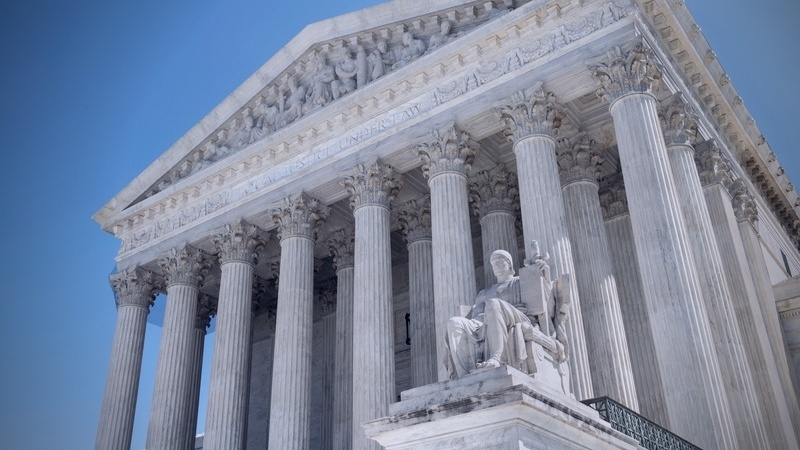
Earlier today, the Supreme Court of the United States ruled in two cases challenging President Joe Biden’s authority to forgive federal student loans under a 2003 law called the HEROES Act. The Department of Education v. Brown case was a unanimous ruling in which the court found the plaintiffs don't have standing; the Biden v. Nebraska case was a 6-3 ruling against Biden and strikes down the student loan relief plan. If the plan had gone into effect, the Department of Education would have provided up to $20,000 in loan relief to borrowers with Department-held loans whose individual income is less than $125,000 ($250,000 for married couples) and who received a Pell Grant. Borrowers who met those income standards but did not receive a Pell Grant in college could have received up to $10,000 in loan relief.
Statement from Michigan College Access Network Executive Director Ryan Fewins-Bliss:
“Today’s Supreme Court decision striking down President Joe Biden’s student debt relief plan is a massive disappointment to the hundreds of thousands of Michiganders living under the burden of loans taken out in pursuit of higher education. This includes tens of thousands of Michigan residents who took out student loans but never completed a degree or certificate, which means they are saddled with debt but unable to access the economic benefits of higher education.
“In the less than four weeks that the student debt relief application was open before the program was paused by legal challenges, 864,000 Michiganders applied or were deemed automatically eligible for relief. This represents millions of dollars that could have been invested in communities across the state. Individuals and families who could have used this money to purchase cars, buy a house or pay for childcare will have to resume payments on loans that would have been forgiven.
“While today’s decision is a setback, we are committed to continuing the fight to make college affordable for all students. Decades of rising college costs and decreased investment in financial aid have placed a growing burden on college students — a burden that weighs most heavily on students of color, first-generation college-going students and low-income students. Federal Pell Grants, which were designed to help the most disadvantaged students, have not kept up with the rapidly growing price of higher education. We must do more to make sure future generations aren’t saddled with the same debt as they pursue meaningful careers and financial prosperity.
“MCAN will continue to work at the federal and state levels to reduce the costs of postsecondary education and provide more opportunities for Michiganders to pursue greater economic possibilities through degrees and certificates. Over the past 13 years, MCAN has successfully worked to make changes in state-based financial aid that reduce student loan debt. We have helped to shape and promote the Michigan Achievement Scholarship and Michigan Reconnect, transformational programs that are making college more accessible for hundreds of thousands of Michiganders. We will continue to work with Governor Whitmer and policymakers on both sides of the aisle to enact equity-informed legislation that improves college readiness, participation and completion. By continuing to create systems-level change around college affordability, we can continue our momentum toward Sixty by 30 and build a stronger workforce prepared to meet the needs of today and tomorrow’s economy.”
Student Loan Debt in Michigan (via the Education Data Initiative):
• $51 billion in student loan debt belongs to Michigan residents.
• $36,116 is the average student loan held by Michigan residents.
• 1,412,100 student loan borrowers live in Michigan.
• 52% of student debt holders are under the age of 35.
• 14% of state residents have student loan debt.
• Among the state’s indebted student loan borrowers, 16% owe less than $5,000.
• 21.6% owe $20,000 to $40,000.
• 2% owe more than $200,000.
Earlier today, the Supreme Court of the United States ruled in two cases challenging President Joe Biden’s authority to forgive federal student loans under a 2003 law called the HEROES Act.